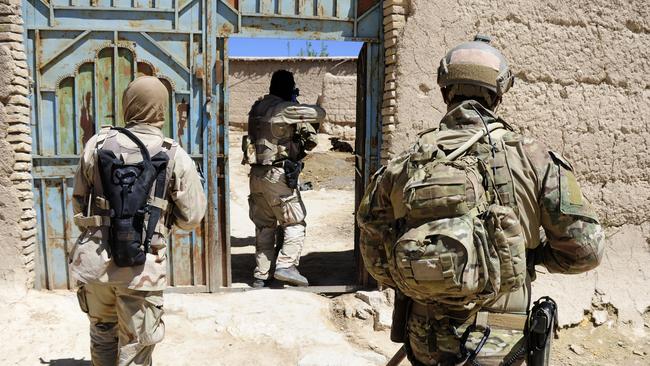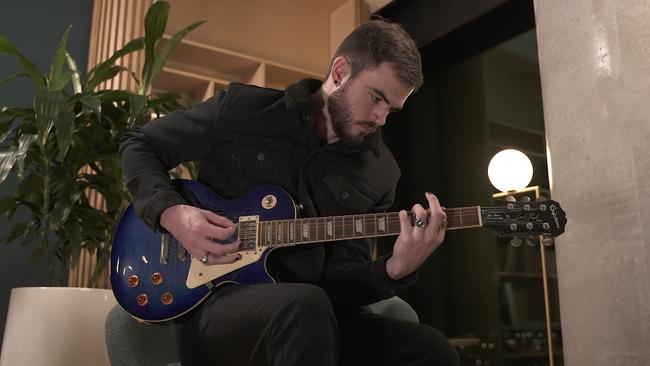Study finds ex-military get more jobs, pay than national average
Ex-military personnel get more jobs and money than the rest of the Australian population. See how they do it.
National
Don't miss out on the headlines from National. Followed categories will be added to My News.
Australian Defence Force veterans had lower unemployment rates and higher rates of pay and education than the rest of the Australian population, unless they medically discharged which made them more likely to be jobless and poor.
And those who serve in the Navy were likely to face more challenges transitioning to civilian life than those from other services such as Army and Air Force.
That’s one of the conclusions of a national study by the Australian Health and Welfare Institute that in conjunction with the Department of Veterans Affairs used 2016 census and Defence data to analyse the wellbeing of ex-military personnel.
The AIHW found by default, ADF personnel service meant they were more likely to be exposed to trauma and lose support networks when deployed which had an effect.
“These experiences mean some ex-serving ADF members may encounter challenges in everyday living above those of the Australian population, especially those who discharge involuntarily,” the report concluded.

“Australia’s veterans may experience physical and mental health needs, outcomes and challenges that are different from the rest of the Australian population including increased risks of mental illnesses, poorer physical health and impacts to general wellbeing following separation (or transfer) from the regular ADF service. This can affect some people during the transition phase and their success of reintegration and employment after transition, and in the longer term with the later onset of chronic health conditions.”
But overall the report painted a positive outcome for most ex service men and women, although authors concede another report specifically on veteran suicide was to be released later this year.
According to this report of the former personnel who served between 2001 and 2016, more than three quarters of veteran males and females (78 per cent and 76 per cent respectively) were employed, compared with 67 per cent of Australian males and 57 per cent of Australian females.

After adjusting for age, ex-serving females were employed at a higher rate than Australian females, while ex-serving males were employed at a similar rate.
Former female soldiers were also more likely to hold a bachelor degree of higher than other civilian females.
The majority of ex-serving members had attained higher education qualifications, were employed, earned higher incomes than the Australian population, owned their own homes (including those paying mortgages) and were socially connected by living in a family type household.
“Most veterans faring well in education, employment and income,” the report headlined.
The seemingly rosy picture for ex-serving ADF members in the latest AIHW data-led snapshot on veterans’ affairs sits in stark contrast to the hundreds of first-hand testimony as presented to the Royal Commission into Defence and Veteran Suicide.

In the commission’s interim report released a fortnight ago it flagged the national tragedy that was veteran suicide with the commission noting was contributed to by staff shortages, complex laws and bad administration of the DVA and “limited willingness by Defence to review historic abuse cases.
In that report they recorded harrowing tales of unemployment, depression and suicidal tendencies and a noted lack of assistance with post service tertiary education and employment.
HOW VETERANS CAN EARN SIX-FIGURE SALARIES
Australian veterans struggling to find work are being given a leg up into the tech industry — with potential to earn a six-figure salary.
Software multinational Microsoft is offering 17-week intensive courses to equip veterans with the skills they need to flourish in the technology sector.
The company’s Microsoft Software Systems Academy (MSSA) skills graduates up for roles such as service engineers, developers or software engineers, where salaries can range from $70,000 to $150,000.

Former Australian Navy officer Sam Lloyd wanted to study at MSSA after he spent 18 months applying for 350-plus jobs that barely resulted in an interview, despite his management and security experience.
Mr Lloyd had been a maritime war officer, navigating and conducting war ships and overseeing submariner training, before retiring from the defence forces in 2020.
He said he enjoyed the eight years he spent serving his country but yearned for better work-life balance. He did not expect the transition to be so difficult.

He originally studied audio engineering, hoping to develop his passion for creating music into a post-Navy career.
But when Covid hit, a job pouring beers was the best he could find.
“My plan pretty much got thrown out the window and I had to adapt,” he said.
“I felt like I was back at square one and left out in the wild. I started thinking ‘am I on the right track here?’”

He is now a graduate of MSSA’s first Australian co-hort and has landed a role as Microsoft’s data security operations manager in Canberra.
“I was applying for 20 jobs a month while looking for work and only got two interviews. The job I was doing in the Navy, while impressive, doesn’t necessarily translate into the corporate world very well,” he said.
“Networking was an eye opener for me. It was so foreign to me and how to translate defence skills into corporate and commercially recognised experience.”

Microsoft senior talent business manager Jolly Jude said the MSSA first launched in the US in 2013 in response to 200,000 people leaving US military service annually and “struggling to find employment while the tech industry’s skills gap was rapidly growing towards the crisis level it is in today”.
“At Microsoft alone there were thousands of jobs unfilled because of a lack of talent with required tech skills,” Ms Jude said.
She said the Tech Council of Australia predicted the country would need one million people working in technology by 2025 to meet growth of the industry.
“This means we need 260,000 more skilled people to enter the workforce by this time,” she said.
“After nine years of running the program in the US, UK and now Australia, Microsoft has coached 3390 graduates, the program has a graduation rate of 95 per cent. Of those 91 per cent are now in tech careers.”
The next MSSA courses will be held next year, with applications opening in January.



